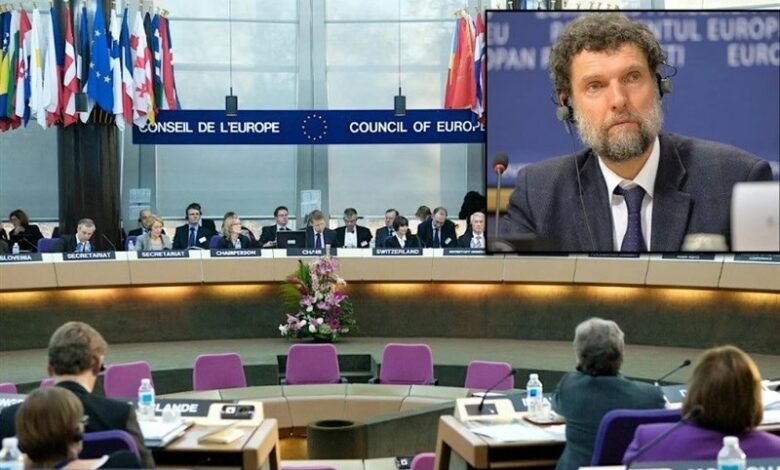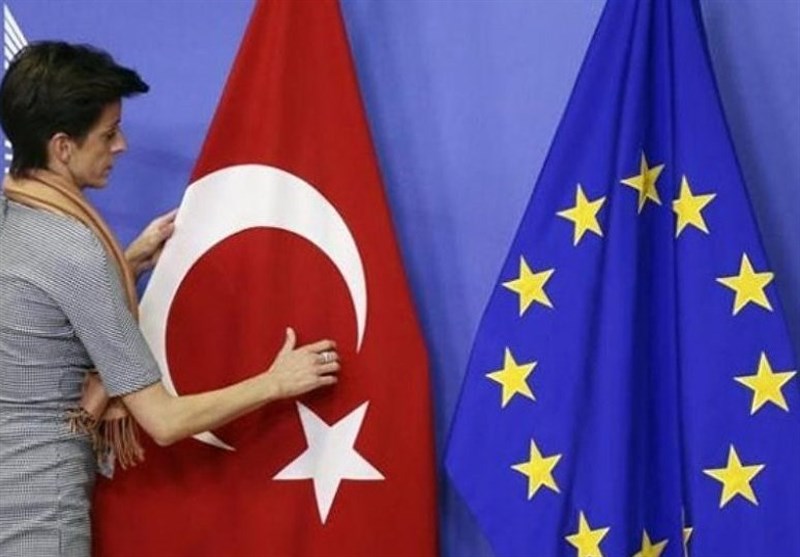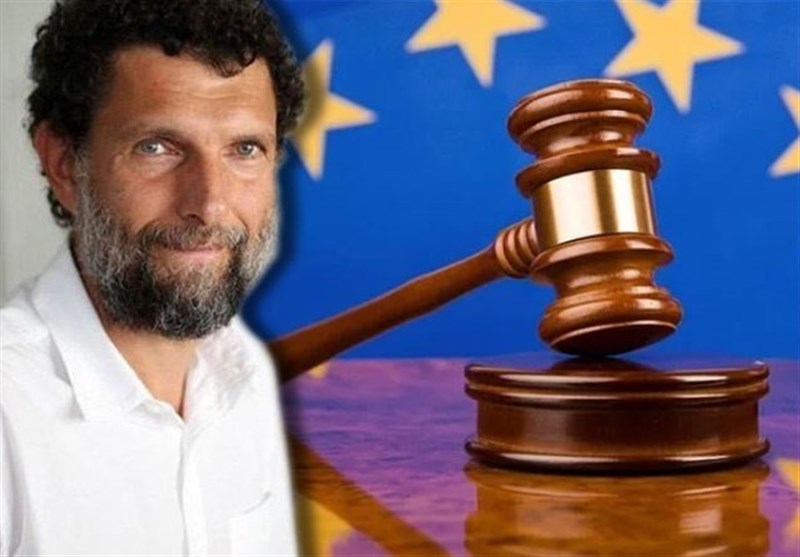Türkiye against the tough threat of the European Union

| The Committee of Ministers of the Council of Europe has set a deadline for the Turkish judiciary and demanded the implementation of one of the rulings of the Human Rights Court. |
According to the international group Tasnim news agency, the sky of relations between Turkey and the European Union is still cloudy. Although the Turkish government has quietly allowed the special rapporteur of the Union to visit Osman Kavala, one of the most important political prisoners in this country, it is not yet clear what will happen and recently, the Council of Europe’s Committee of Ministers for the Turkish Judiciary It has set a deadline and demanded the implementation of one of the rulings of the Human Rights Court about the said prisoner.
Nacho Sanchez Amor, The European Parliament’s permanent rapporteur on Turkish affairs visited Kavala in Siliori prison and was called the first member of the European Parliament who finally managed to get Erdogan’s permission for this sensitive meeting. Because it is said that Erdogan has a special sensitivity towards Kavala and does not even want to hear his name.
He is the rich businessman who Last year, during the protests and the long sit-in by Erdogan’s opponents in Istanbul’s Gezi Park, he said that it is necessary to stay there for a few days; Preparing 3 hot meals with me!
Since that day, Kavala has been imprisoned for committing a security crime and threatening the national security of the Republic of Turkey. .
The European Court of Human Rights violated this sentence twice and ordered his release, but the Turkish judiciary did not accept the sentence and Kavala is still imprisoned. But now, with the issuance of a visit permit to the European Parliament reporter, the hope has grown that he will probably be released before Christmas and return home.
Amor expressed hope, the committee of ministers threatened
Osman Kavala, a famous Turkish businessman and human rights activist, who has been in prison for more than 2,000 days, in a meeting with Amor Sanchez, demanded that the European Parliament put pressure on Turkey.
The parliament reporter announced after the meeting: “The decision of the Turkish government to allow this trip and this meeting is an important step in the right direction.” I would like to thank the Ministries of Justice and Foreign Affairs of Türkiye. I hope that this transparency, in the framework of the recent joint communications between the Commission and the Vice President, will be a sign of the beginning of a new era in EU-Turkey relations and that the next steps will be taken in the field of the rule of law and constitutional rights in Turkey”.
The Spanish politician, a member of the European Parliament, added: “It was very moving for me that I finally met Osman Kavala in person. Despite the clear decisions of the European Court of Human Rights and the repeated requests of the Committee of Ministers of the Council of Europe, Kavala has been in prison for more than 6 years without any legal justification. I conveyed to Kavala the solidarity and determination of the European Parliament to continue the demand for his release. I once again call on the Turkish authorities to fully implement the decisions of the European Court of Human Rights on Osman Kavala and other related cases and to comply with international obligations as the best way to use the full capacity and potential of our relationship.”
After the publication of the news of Amor Sanchez’s meeting with Kavala, the Committee of Ministers of the Council of Europe met in Strasbourg, France between December 5 and 7 to monitor the implementation of the decisions and regulations of the European Court of Human Rights (ECHR). Europe should act on the necessity of Osman Kavala’s release.
If Osman Kavala is not released based on the decision of the European Union, the European Council is considering these possible scenarios. is: the first scenario, the launch of a process called the common procedure by three persons consisting of the Committee of Ministers, the Parliamentary Assembly of the Council of Europe (PACE) and the Secretary General of the Council of Europe. The purpose of this procedure is to ensure that a member state of the Council of Europe fulfills its obligations arising from this membership “within the framework of dialogue and constructive cooperation”. This procedure considers drawing a road map or setting a timetable for the member state to fulfill the obligations and decisions of the ECHR.
In this context, the possibility Sanctions and even expulsion from membership are possible. This procedure, which was put on the agenda of the European Council after the annexation of Crimea to Russia, has not been implemented for any of the member states of the European Council.
Therefore, considering the current international conditions, its practical application is doubtful even in the lobbies of the European Council. A 2/3 majority vote in the Committee of Ministers consisting of 46 member states is required to initiate the procedure. (It should be explained that the Council of Europe and the European Union are not the same, and for example, even countries such as the Republic of Azerbaijan, Ukraine and Georgia are members of the European Council.)
The second scenario is to initiate a special monitoring process only in the case of Osman Kavala and only in the Committee of Ministers of the Council of Europe. This issue was put on the agenda in the Osman Kavala decision adopted by the Parliamentary Assembly of the Council of Europe (PACE) in Strasbourg on October 12, 2023. It was requested that the implementation of the provisions of the ECHR by Turkey be put under general supervision in the Committee of Ministers. If it is not released until January 1, 2024, the authorization documents of the Turkish delegation to PACE may not be renewed. In case of not renewing the competence of Turkish parliamentarians, the doors of the parliament will be closed to the Turkish delegation consisting of nine representatives of Justice and Development Party, four representatives of CHP, two representatives of MHP, two representatives of HEDEP and one representative of İYİ Party.
Turkey last experienced a similar scenario between May 1981 and January 1984 after the military coup of September 12, 1980, and did not participate in PACE between these dates.
An interesting point here is that the European Court of Human Rights has already ordered the release of Salahuddin Demirtash, a political prisoner affiliated with the PKK, several times. But now Europe does not mention this issue due to the security and political sensitivity of Erdogan’s government. Now it has to be seen, after the serious threats of the committee of ministers, whether the Erdogan government will release Kavala with a pragmatic attitude and in order to achieve the interests of the customs union.
end of message/
| Publisher | Tasnim News |




